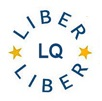The Keystone Principles - Creation and Influence
DOI:
https://doi.org/10.18352/lq.7751Abstract
On September 25, 1999, 80 academic library leaders got together at the American Research Libraries/Online Computer Library Center (ARL/OCLC) Director's Summit in Keystone, Colorado, USA. They challenged themselves to plan for the future of libraries in the digital environment. They all believed that to remain viable in the global economy, libraries and librarians need to assert the underlying values of librarianship as a way to redefine the rules of the playing field in this new environment. An informal working group agreed to write a statement articulating the values of academic libraries and how those values could be reflected in the digital arena. As Carla Stoffle, Dean of University Libraries and the Center of Creative Photography at the University of Arizona states, "We must all become activists, seize the initiative, and gain control of the 'rules' which are now in the hands of others" (Stoffle, 2003). The 'others' are publishers, software producers, information technology professionals, etc. At Keystone participants tackled the following topics: · How to create and support new learning and research environments · How to work creatively with information providers to develop strong responses to needs · How to engage in the changing aspects of teaching and learning in higher education · How to expand their library's knowledge management role within the university · How to connect the values of libraries with the technological environment (Stoffle, 2000). So the Keystone Principles require explicit action based on three specified user-centered principles and twenty-two action items rooted in our values.Downloads
Download data is not yet available.

Published
2003-09-23
Issue
Section
Articles
License
Copyright (c) 2003 Laura J. Bender

This work is licensed under a Creative Commons Attribution 4.0 International License.
How to Cite
The Keystone Principles - Creation and Influence. (2003). LIBER Quarterly: The Journal of the Association of European Research Libraries, 13(3-4). https://doi.org/10.18352/lq.7751





